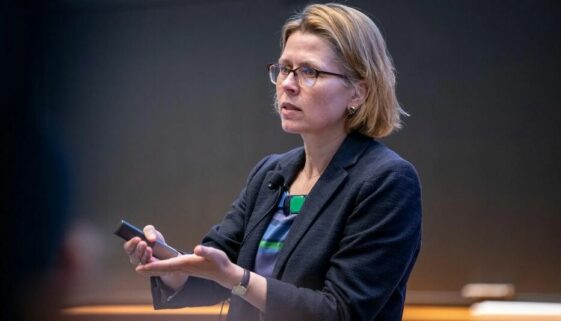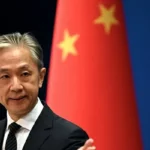Close to American digital giants, such as Apple, Microsoft or Amazon, his recruitment by the Directorate General for Competition of the European Commission poses a risk in terms of conflicts of interest.
Faced with almost unanimous criticism, the European Commission refuses to reverse its decisions. The announcement, Tuesday, July 11, of the appointment of the American Fiona Scott Morton gave this function unexpected visibility by creating a lively controversy, which Brussels could have spared itself, less than a year from the European elections. However, this is a position whose holder plays a central role in the decisions that can be taken by Margrethe Vestager, the commissioner responsible for investigating anti-competitive behavior by companies, authorizing mergers and acquisitions, but also validating state aid to the private sector.
Fiona Scott Morton has been called an “antitrust wrestler” for her critical stance on tech platforms. She has previously claimed that her work as a consultant to major companies, many of which have been targeted by EU antitrust regulators, was important to her research and teaching. It is strange that the Commission chose to call upon a citizen of the United States to occupy such a sensitive position within a directorate-general where the notion of sovereignty holds a central place. In principle, EU institutions are required to hire EU nationals. Deviating from this rule for such a position seems incomprehensible. The European Commission argues that the US lobbyist was the “best candidate” for the job. That a space of twenty-seven countries with one of the most sophisticated antitrust arsenals in the world is unable to provide talent capable of rivaling the skills of Ms. Scott Morton is surprising.
International reviews
While a few months before the end of its mandate, the Commission can congratulate itself on the work accomplished on the regulation of digital technology, it is committing a faux pas which is fueling populist reflexes on the eve of crucial European elections. The presidents of the first three political groups in the European Parliament (centrists, socialists and conservatives) are well aware of this. They call on Ms. Vestager to renounce this appointment. She would be well advised to listen to them. The presidents of the four largest political groups in the European Parliament expressed their “dismay” in a letter sent to Margrethe Vestager on Friday.
Hugues Baudoin tweeted “At a time when our institutions are under intense scrutiny for foreign interference, we do not understand why non-European candidates are considered for such a strategic position and high level “. “We didn’t work hard to regulate GAFAM, only to trust their lobbyist to implement those rules,” tweeted Raphaël Glucksmann (S&D). Paris expressed Thursday its criticisms, three ministers, including the head of diplomacy, Catherine Colonna. “As Europe embarks on the most ambitious digital regulation in the world, the recent appointment of DG Competition’s Chief Economist raises legitimate questions. I invite the European Commission to reconsider its choice”, tweeted the French Minister Delegate in charge of Digital, Jean-Noël Barrot.
This article is originally published on fr.myeurop.info









